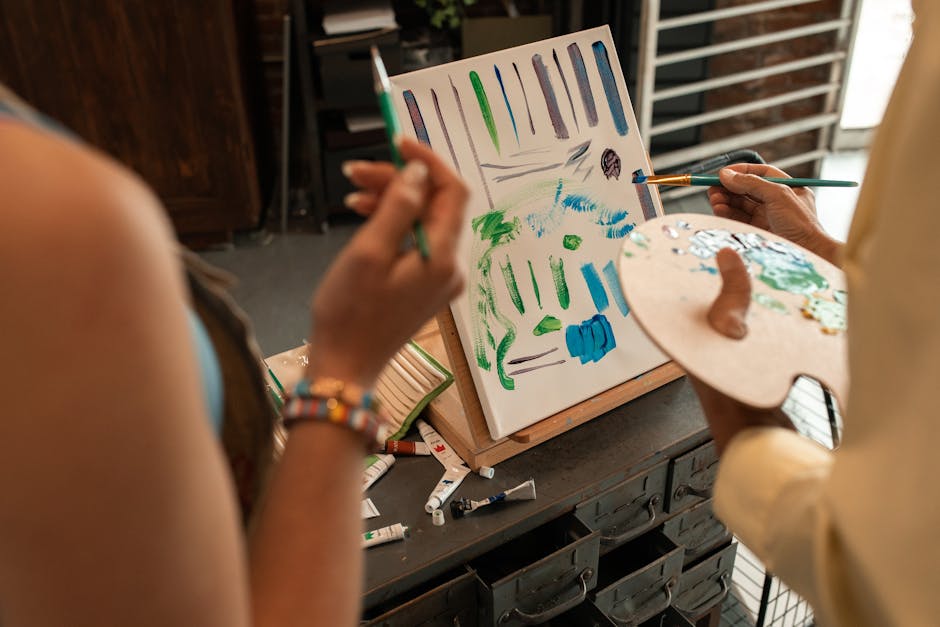Engaging in hobbies and crafts offers a compelling avenue for skill acquisition, transcending simple leisure pursuits. The inherent nature of these activities often necessitates the learning and refinement of various skills, both tangible and intangible, contributing significantly to personal growth and professional development. This extends beyond the immediately obvious, encompassing cognitive abilities, dexterity, and even problem-solving capabilities.
Many crafts, by their very definition, demand the acquisition of specific techniques. Woodworking, for instance, requires a working knowledge of carpentry tools, an understanding of wood grain and its properties, and the ability to execute precise cuts and joins. Similarly, knitting and crocheting necessitate dexterity, pattern recognition, and a grasp of tension control to create consistent stitches. These skills, honed through practice and experimentation, become second nature, transferable not only to related crafts but also to other aspects of life. The precision needed in miniature painting, for example, translates well to detailed work in other fields.
Beyond the technical proficiency demanded by individual crafts, many hobbies encourage broader skill development. Pottery, for example, necessitates a degree of artistic vision and an understanding of form and composition. The iterative process of sculpting clay, glazing, and firing the finished piece fosters creativity and an appreciation for aesthetics. This creative process extends to other artistic endeavors, even if indirectly, influencing design thinking and problem-solving abilities. Similarly, quilting, requiring meticulous planning and precise execution, instills organizational skills and attention to detail, beneficial in both professional and personal settings.
The learning curve in crafts is frequently characterized by a cyclical process of trial and error. Early attempts may be imperfect, even flawed, yet this process is inherently valuable. Each failed attempt provides feedback, informing subsequent efforts and contributing to a deeper understanding of the craft. This iterative approach mirrors many aspects of real-world learning, promoting resilience and perseverance crucial attributes for success in any field. Learning to knit a complex pattern, for instance, requires patience and troubleshooting skills as one encounters mistakes and unravels sections of work. This experience fosters problem-solving capabilities that extend beyond the craft itself.
Furthermore, many hobbies necessitate the acquisition and application of knowledge beyond mere technique. Baking, for example, requires an understanding of chemistry, specifically the reactions involved in leavening agents and the impact of different ingredients on the final product. Brewing beer or wine similarly necessitates a scientific understanding of fermentation and yeast activity. Such hobbies, far from being solely recreational, become vehicles for learning complex scientific principles in an engaging and hands-on manner.
The social aspect of many hobbies also contributes significantly to skill development. Joining a knitting circle, a pottery class, or a woodworking club exposes individuals to a community of like-minded individuals. This shared experience facilitates knowledge exchange, providing opportunities to learn from more experienced practitioners, share techniques, and receive constructive feedback. Collaboration on group projects, common in many crafts, enhances teamwork skills and interpersonal communication. The ability to articulate ideas, offer constructive criticism, and work towards a common goal are invaluable skills honed within such collaborative environments.
Moreover, the completion of a project, regardless of complexity, instills a sense of accomplishment and boosts self-esteem. This positive reinforcement encourages further exploration and skill development. The satisfaction derived from creating something tangible, from a hand-woven scarf to a meticulously crafted wooden birdhouse, motivates individuals to continue learning and refining their skills. This intrinsic motivation is a powerful driver of personal growth and can lead to unexpected career opportunities.
In conclusion, the assertion that hobbies and crafts can facilitate skill development is readily demonstrable. These activities provide a multifaceted approach to learning, encompassing technical skills, creative abilities, problem-solving techniques, and social interaction. The iterative nature of many crafts fosters resilience and patience, while the tangible results provide positive reinforcement. The skills acquired are not confined to the realm of the hobby itself; rather, they are transferable and applicable to diverse aspects of life, both personal and professional. Therefore, pursuing hobbies and crafts is not merely a leisure activity; it’s a valuable investment in personal growth and skill acquisition, enriching lives in ways that extend far beyond the immediate enjoyment of the activity. The potential for personal and professional development through hobbies is profound and warrants greater recognition.
